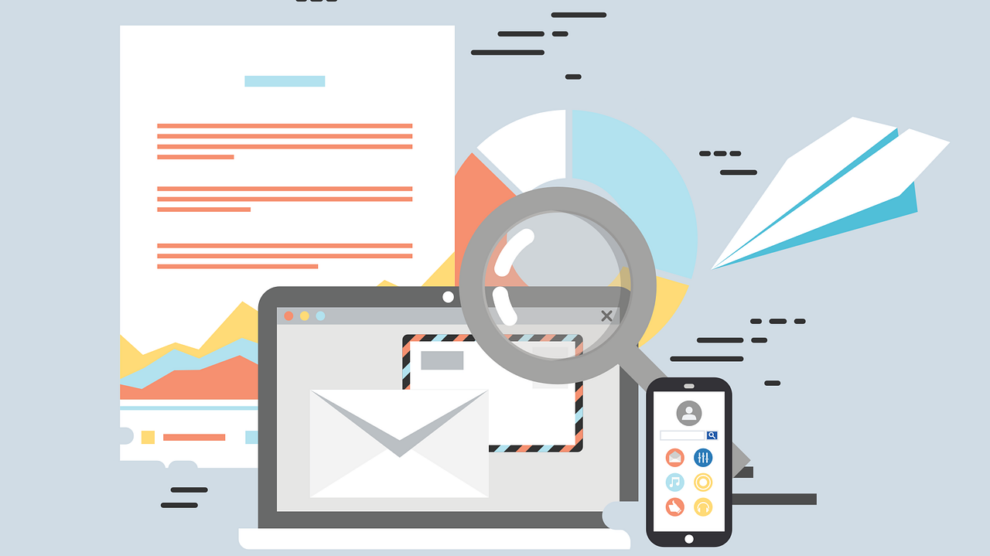Imagine you come up with the perfect idea for a play. You start working on the characters, building the plot, adding twists, and writing the final act. What if you don’t have enough audience at your premiere? How will you get the theater running?
That’s how successful email marketing works. Regardless of the effort you put into your emails, if you don’t get them in front of a broader audience, they won’t bring the desired results.
So, the first thing to do is grow your email list.
But think of quality over quantity. Buying email lists is never a good choice. You don’t want a lead forced to join your list, just like you wouldn’t bring a random passerby into your theater. So, it’s not just about acquiring subscribers; you want them to be genuinely interested in your brand, too.
They’re the ones who will convert into loyal customers. How will get those wannabe customers to join your list? The following tips will help you populate your list with qualified contacts who stick around all the way to the final applause.
1. Use a Reliable Email Marketing Solution
It’s a no-brainer that you need an email marketing solution to grow your email list. Such a tool includes features like list segmentation and email personalization, which are valuable assets for effective contact management. But is that all you should look for in email marketing software?
Definitely not. Your tool of choice should also come with:
- Options to build, customize, and test signup forms, and access templates to save time when designing your forms.
- An intuitive landing page builder to create effective landing pages and optimize them to get the most out of list building.
- Robust analytics to track key metrics that show the effectiveness of your forms and landing pages (e.g., signup and list growth rates).
- Excellent deliverability rates so your emails land in subscriber inboxes instead of the spam folder.
- Integration with other popular tools to ensure seamless and quick list building across multiple channels.
There are several user-friendly solutions that include these capabilities. Tools like Mailchimp facilitate list growth through an extended list of integrations. You can also group contacts based on their signup source, which helps you keep them organized.
But Mailchimp charges users for inactive recipients or even for non-subscribed contacts. So, if someone purchases from your online store but doesn’t opt in to your list, they still count towards your plan limit. This could turn your list growth into a counterproductive and expensive process.
And while Mailchimp has a good deliverability reputation, many users report that their emails end up in spam. That’s why some of them turn to reliable alternatives to Mailchimp that come at a fraction of the cost while offering the necessary features – great deliverability included.
2. Leverage Well-Timed Popups on your Site
Your website is often the first point of contact between consumers and your brand. So, it’s the ideal space for catching their attention and encouraging email signups, usually through a popup form. By their nature, popups are a dynamic method to engage users. When used with the user experience in mind, that is.
Let’s take standard popups as an example. They appear on a website after a set amount of time, fading over the main content. However, if your timing or messaging is wrong, they can be intrusive and lead to high bounce rates.
Popups can be triggered by a range of user actions, the most common being after users spend time on a page or immediately upon landing. Like on the home page of Britchida.
To target already engaged users, you can set them to appear after visitors click on a link or scroll down a page. One of the most popular options is to add exit-intent popups to turn visitors who’re about to leave your site into email subscribers.
Whatever you choose, make sure your popup adds value to the user experience. Here’s how:
- Employ simple and concise copy to communicate your message.
- Use compelling images or bold colors to grab attention.
- Add straightforward and powerful CTAs to prompt action.
- Clearly state the benefits of subscribing.
- Include relevant incentives to encourage signups.
3. Add a Compelling Incentive
Don’t you just love free stuff? So do your visitors. This makes incentives a powerful tool to grow your email list. It’s a fair deal where you offer users something free of charge and they give you their email address.
But any incentive won’t do the trick. It should be something relevant both to their needs and your value proposition. Let’s say a luxury accessory brand offers a discount on a fast-food menu. Something wrong with the targeting here, right?
Ensuring your incentive matches the needs of your customers is key. This will help you not only increase the size of your list, but also bring the right people in. There’s no reason to limit yourself to one incentive type, though. Consider mixing up different incentives based on your specific marketing objectives and audience groups.
Here are some ways to kindle their interest:
- A discount on one of your products or services
- A free shipping offer for eCommerce businesses
- An eBook or other type of downloadable material
- A free product sample or a free trial period for your service
- Access to premium content like industry-related blog posts or videos
- A webinar registration or a free course
Blog Tyrant uses a discount and a clever CTA to generate subscribers. Extra points for adding a countdown timer to create urgency and centering the copy around the benefits of signing up:

4. Let Social Media Give You a Boost
We live in the era of social media. Most consumers are there, which makes these channels a bulletproof way to reach a broader audience. Encouraging your social media followers to subscribe to your newsletter is relatively easy and simple, especially if you’re already using social media marketing as a business tool.
First, use the lead generation options of your email marketing platform to create a dedicated signup landing page. Once you have it up and running, all you need to do is use the link on your social media accounts to invite users to join your list. You have a number of options, such as:
- Placing the link on your Facebook page.
- Including it on your Instagram and LinkedIn profile.
- Adding the link in your Twitter or TikTok bio.
- Including the signup link in the descriptions of your YouTube videos.
- Taking it one step further by highlighting exclusive newsletter content on Instagram Stories or sharing posts about the benefits of joining your list on LinkedIn.
Here’s an example of Moosend’s Facebook page where visitors can click on an email signup CTA to subscribe to the company’s newsletter:

If you don’t have budget restraints, consider using paid ads that incentivize email signups through exclusive discount promo codes. For instance, Facebook Lean Ads allow users to fill in the opt-in form without leaving the platform, minimizing friction points and increasing the chances for more signups. There’s even the option of collaborating with an influencer in your industry, leveraging their audience to grow your email list.
One of the most effective practices, though, is to run a social media contest or giveaway. Through this process, you can ask for users’ email addresses in exchange for entries to win the prizes. Another option is to promote your giveaway through your emails and encourage your existing subscribers to share the news with their social media connections to increase visibility.
5. Rely on Existing Subscribers
Your loyal customers can prove to be an excellent source of new leads. They already know your business and have probably experienced the benefits of using your products or services. So, they’re more likely to encourage other consumers to put their trust in your brand and offerings. Also, their personal connections will trust a direct recommendation from someone they know more than your brand messages.
Ask your current contact database for testimonials and reviews where they share their experiences with your brand. It’s even better if they come in the form of videos as video content is more captivating and digestible. You can also leverage detailed case studies to show how your products or services improved your audience’s lives. A great idea is to invest in user-generated content. Encourage existing subscribers to create content, such as videos or images, where they use your products or services.
Once you collect the appropriate material, make sure to highlight it in your emails, landing pages, and social media to bring more people in.
Another way to go is to incentivize existing subscribers to refer your business to their friends and acquaintances. Or you could urge them to share your email content with their contacts. To achieve your objective, consider giving your readers something in return.
If you have a points system, let them know how many points they’ll gain for sharing your email or asking a friend to join your list. Different incentives include coupons or discounts, freebies, or free shipping. And you can throw in an incentive for your new contacts to motivate them to subscribe. For instance, you could promise them access to exclusive offers, free webinar registrations, or downloadable material.
6. Connect with People Offline
Growing your email list offline sounds counterintuitive. But why not benefit from the direct nature of in-person interactions? Offline methods work equally well to expand your reach to new audiences. Let’s see how:
- Print business cards and give them out to people you meet in person, either at events and conferences or your physical stores.
- Ask event participants if they would like to receive email marketing messages from you, notifying them of future events and other business updates.
- Participate in events where you’ll have a registration form for visitors to fill in their email addresses.
- Let your close contacts (friends, family, and acquaintances) know you want to grow your email list, so they spread the world and perhaps share your email content with others.
As with online list building, ensure you stay legally compliant when reaching out to people in-person. Make sure your registration forms include all the proper legal statements and never email people who haven’t explicitly given their consent to receive emails from your brand.
Focus your Efforts on List Growth
Growing your email list doesn’t have to take time and effort or even extra resources. By implementing the tactics shared in this article, you can grow a list of engaged recipients who will be interested in your business news.
While you invest in list growth, remember to use all your resources like your social media and strengthen the bond with existing customers. Every interaction could hold new opportunities to grow your customer base, so try to establish meaningful in-person connections, too.
What matters the most is to make the most of your email marketing strategy, building long-lasting relationships that will also help you further expand your reach to new audiences.





